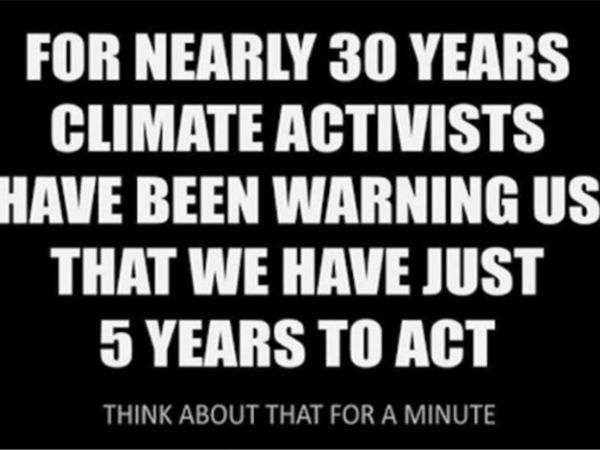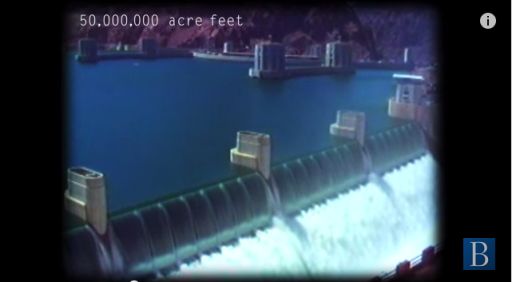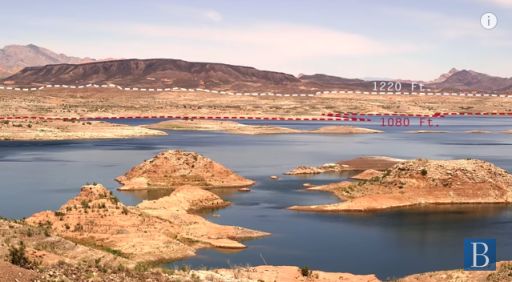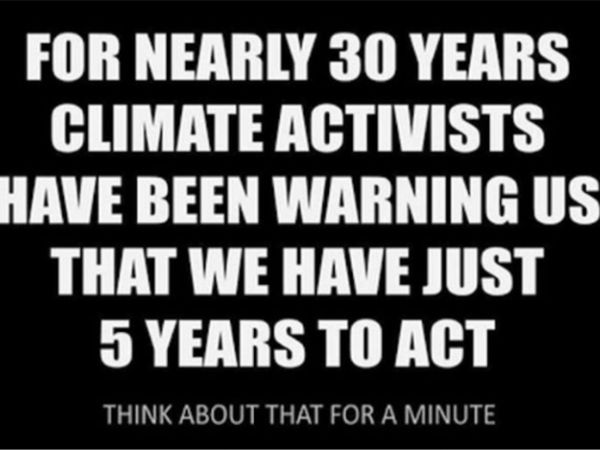Ignore the c*****e c****e deniers. California's hellish summer really is a grave warning
Aug 11, 2018 19:24:31 #
Wind-swept wildfires raging. Homes incinerated. Families displaced. Lives lost.
In the long, hot, smoky California summer of 2018, as we camp under ash-hued sunset skies, the scariest thought is that the future has arrived, and more intense weather extremes will continue to wreak havoc in years to come. Not just in summer, but with drought-deluge cycles and higher temperatures even in cooler months.
Last week, an 81-year-old Van Nuys resident told me that sure, summers have always been hot, but lately they seem to have been imported from Palm Springs.
Near Santa Cruz, a winery owner told me there are fewer foggy days and more high temperatures, shrinking what have long been prime grape-growing regions.
But not everyone is alarmed, it turns out, which I’ve discovered since my July 18 column on c*****e c****e. Reaction has fallen into the following categories:
There is no c*****e c****e, and I’m a stooge to have fallen for a h**x. G****l w*****g exists, but it’s not man-made.
C*****e c****e is real, but it’s silly to believe California’s environmental zealotry can measurably improve a global problem.
And lastly, if c*****e c****e is real and it’s here, what can we do about it legislatively and individually?
So let’s take a look at each one, beginning with those who believe — as does the president of the United States and a number of his key advisors and members of Congress — that c*****e c****e is a figment of our imaginations, or that we’re overreacting to what might simply be natural variations.
“You see, Steve, what you call g****l w*****g, we call summer,” wrote a reader named Jim:
“They say the temps are the highest recorded in 130 years,” wrote Joe. “What was the excuse for the soaring temps 130 years ago when there were no cars and very, very little industrialization … here’s a clue — it’s a H**X swallowed whole by the rush of lemmings who want to believe they are doing gooooooooooood things for the planet.”
I responded by telling Joe what several climate scientists have painstakingly explained to me in recent weeks:
Yes, unusually high temperatures have always existed, but scientists have now documented more frequent and intense heat waves of longer duration. Also, nighttime temperatures have increased, record highs now outnumber record lows by a 5-1 ratio and atmospheric carbon dioxide has increased from 250 parts per million to 400 parts per million, all of which has altered climates around the world.
Joe called this information “crap” that can’t stand up to “REAL SCIENTIFIC SCRUTINY.” He suggested I look up the writings of climate scientist Judith Curry, who has long attacked the views of many climate scientists as alarmist. Curry has not challenged the notion of g****l w*****g, but has questioned the causes, and whether there has been a rush to judgment.
Ben Santer, a climate scientist with the Lawrence Livermore National Laboratory, had this to say:
“Prof. Curry has argued (and continues to argue) that: 1) climate scientists routinely ignore important uncertainties in their efforts to quantify human influences on global climate; and 2) reality is too complex for us to comprehend; we will never understand the real-world climate system.”
Santer said he disagrees with Curry on both counts.
“In my line of research — climate fingerprinting — we routinely consider uncertainties in satellite temperature data, in model simulations of natural variability, and in model estimates of the climate response to human influences,” Santer said. “Furthermore, we routinely look at other possible explanations for the observed changes in climate (such as changes in the Sun’s energy output and changes in volcanic activity). Uncertainty is an integral part of our work. We do not sweep it under the carpet, as Prof. Curry incorrectly asserts,” Santer said.
He added that despite imperfect observations, it is clear “beyond any reasonable doubt” that evidence points to a “human-caused warming signal” related to greenhouse gas increases. And if we wait for more perfect data before responding, Santer warned, “humanity is in trouble.”
California isn’t waiting. The state has long led the way on embracing renewable energy sources and limiting greenhouse gas emissions. Then there’s the current legislation demanding better gas mileage in the near future, which is under attack by the Trump administration. But as a single state in a world of major polluters, can going green make a difference?
Alex Hall, a UCLA climate scientist, has no doubt. “I think what’s happening in California is wonderful,” said Hall, who traded his gas-hungry car for a Chevy Bolt. “It’s a pathway forward.” Environmentalism isn’t sacrifice, Hall said. It’s change. And in charting a course toward renewable energy and lower greenhouse gas emissions, California is setting an agenda. “If you look at any t***sformation in history, it hasn’t happened all at once everywhere,” Hall said. “It’s been a small group of people committed to change. They’ve made change in their communities and it scaled up from there.”
Lynn Sosa of Mt. Washington emailed to say she wishes outdoor mall merchants would close their doors in the middle of summer, instead of throwing them open so shoppers might be lured in by air-conditioned blasts. Sosa and her husband, Jeffrey Parkin, suggested I visit Glendale’s Americana on Brand, and sure enough, more than half the shops had their doors open as the temperature hit 98 one afternoon.
The Apple store was one of them, and Tesla was another — a Tesla showroom with electric cars on display, along with a wall-mounted solar pitch: “Energy Security for Your Home.”
Maybe Tesla/Space X engineering guru Elon Musk has a plan to reverse g****l w*****g with air conditioning?
Actually, said the Tesla sales clerk, the AC was working so hard with the doors wide open, it had been on the fritz two or three times in recent weeks. He said that keeping the doors open was mall policy, but Americana owner Rick Caruso denied that and called it unacceptable, promising to look into it.
“We are adamant that we are environmentally sensitive,” Caruso said.
“Adaptation is survival, and we have to do it in our personal and professional lives,” said David Fink, a c*****e c****e policy consultant whose projects include updating the state’s Cal-Adapt.org website, which logs c*****e c****e data to aid in planning decisions. We have to be smarter about how we get places, how much fuel we burn, where we clear brush and where we plant trees, where we allow new housing developments and what materials we use to build them, Fink said. “Laying down black asphalt everywhere is one of the worst things we can be doing,” said Fink, who told me about light-colored coating materials that don’t retain as much heat.
The same concept is true, he added, for new roofing materials that reflect rather than absorb heat. “A key to all of this is that a number of these things are either free or there are incentives or rebates available,” said Fink, who recommended going to LADWP.com and clicking on “rebates” for information.
There are, of course, ways to make an impact on a bigger scale, or to at least try. You can speak up for candidates who understand the threat to the planet, or you can scream about destructive environmental policy bought and paid for by f****l f**l barons.
As Santer said, one of the best things you can do is educate yourself. He suggested that I read “C*****e C****e Evidence & Causes,” a short summary that’s been neatly laid out by the Royal Society and the U.S. National Academy of Sciences.
I grew up in California, lived in the Bay Area for 30 years and in Southern California for 20 more, and yes, climate variations have always existed. I can recall many extremes of dry heat and steady rain.
But this looks and feels different. The hills are drier and more combustible, the heat is hotter and more stubborn, the fires are bigger and more frightening and I can only wonder what we’ll be passing on to my daughter and future generations.
However many naysayers there are, including a president who blames California’s catastrophe on everything but g****l w*****g, leading the way on educating, planning and adapting isn’t just possible, it’s a moral imperative.
http://www.latimes.com/local/california/la-me-lopez-climate-action-08122018-story.html
In the long, hot, smoky California summer of 2018, as we camp under ash-hued sunset skies, the scariest thought is that the future has arrived, and more intense weather extremes will continue to wreak havoc in years to come. Not just in summer, but with drought-deluge cycles and higher temperatures even in cooler months.
Last week, an 81-year-old Van Nuys resident told me that sure, summers have always been hot, but lately they seem to have been imported from Palm Springs.
Near Santa Cruz, a winery owner told me there are fewer foggy days and more high temperatures, shrinking what have long been prime grape-growing regions.
But not everyone is alarmed, it turns out, which I’ve discovered since my July 18 column on c*****e c****e. Reaction has fallen into the following categories:
There is no c*****e c****e, and I’m a stooge to have fallen for a h**x. G****l w*****g exists, but it’s not man-made.
C*****e c****e is real, but it’s silly to believe California’s environmental zealotry can measurably improve a global problem.
And lastly, if c*****e c****e is real and it’s here, what can we do about it legislatively and individually?
So let’s take a look at each one, beginning with those who believe — as does the president of the United States and a number of his key advisors and members of Congress — that c*****e c****e is a figment of our imaginations, or that we’re overreacting to what might simply be natural variations.
“You see, Steve, what you call g****l w*****g, we call summer,” wrote a reader named Jim:
“They say the temps are the highest recorded in 130 years,” wrote Joe. “What was the excuse for the soaring temps 130 years ago when there were no cars and very, very little industrialization … here’s a clue — it’s a H**X swallowed whole by the rush of lemmings who want to believe they are doing gooooooooooood things for the planet.”
I responded by telling Joe what several climate scientists have painstakingly explained to me in recent weeks:
Yes, unusually high temperatures have always existed, but scientists have now documented more frequent and intense heat waves of longer duration. Also, nighttime temperatures have increased, record highs now outnumber record lows by a 5-1 ratio and atmospheric carbon dioxide has increased from 250 parts per million to 400 parts per million, all of which has altered climates around the world.
Joe called this information “crap” that can’t stand up to “REAL SCIENTIFIC SCRUTINY.” He suggested I look up the writings of climate scientist Judith Curry, who has long attacked the views of many climate scientists as alarmist. Curry has not challenged the notion of g****l w*****g, but has questioned the causes, and whether there has been a rush to judgment.
Ben Santer, a climate scientist with the Lawrence Livermore National Laboratory, had this to say:
“Prof. Curry has argued (and continues to argue) that: 1) climate scientists routinely ignore important uncertainties in their efforts to quantify human influences on global climate; and 2) reality is too complex for us to comprehend; we will never understand the real-world climate system.”
Santer said he disagrees with Curry on both counts.
“In my line of research — climate fingerprinting — we routinely consider uncertainties in satellite temperature data, in model simulations of natural variability, and in model estimates of the climate response to human influences,” Santer said. “Furthermore, we routinely look at other possible explanations for the observed changes in climate (such as changes in the Sun’s energy output and changes in volcanic activity). Uncertainty is an integral part of our work. We do not sweep it under the carpet, as Prof. Curry incorrectly asserts,” Santer said.
He added that despite imperfect observations, it is clear “beyond any reasonable doubt” that evidence points to a “human-caused warming signal” related to greenhouse gas increases. And if we wait for more perfect data before responding, Santer warned, “humanity is in trouble.”
California isn’t waiting. The state has long led the way on embracing renewable energy sources and limiting greenhouse gas emissions. Then there’s the current legislation demanding better gas mileage in the near future, which is under attack by the Trump administration. But as a single state in a world of major polluters, can going green make a difference?
Alex Hall, a UCLA climate scientist, has no doubt. “I think what’s happening in California is wonderful,” said Hall, who traded his gas-hungry car for a Chevy Bolt. “It’s a pathway forward.” Environmentalism isn’t sacrifice, Hall said. It’s change. And in charting a course toward renewable energy and lower greenhouse gas emissions, California is setting an agenda. “If you look at any t***sformation in history, it hasn’t happened all at once everywhere,” Hall said. “It’s been a small group of people committed to change. They’ve made change in their communities and it scaled up from there.”
Lynn Sosa of Mt. Washington emailed to say she wishes outdoor mall merchants would close their doors in the middle of summer, instead of throwing them open so shoppers might be lured in by air-conditioned blasts. Sosa and her husband, Jeffrey Parkin, suggested I visit Glendale’s Americana on Brand, and sure enough, more than half the shops had their doors open as the temperature hit 98 one afternoon.
The Apple store was one of them, and Tesla was another — a Tesla showroom with electric cars on display, along with a wall-mounted solar pitch: “Energy Security for Your Home.”
Maybe Tesla/Space X engineering guru Elon Musk has a plan to reverse g****l w*****g with air conditioning?
Actually, said the Tesla sales clerk, the AC was working so hard with the doors wide open, it had been on the fritz two or three times in recent weeks. He said that keeping the doors open was mall policy, but Americana owner Rick Caruso denied that and called it unacceptable, promising to look into it.
“We are adamant that we are environmentally sensitive,” Caruso said.
“Adaptation is survival, and we have to do it in our personal and professional lives,” said David Fink, a c*****e c****e policy consultant whose projects include updating the state’s Cal-Adapt.org website, which logs c*****e c****e data to aid in planning decisions. We have to be smarter about how we get places, how much fuel we burn, where we clear brush and where we plant trees, where we allow new housing developments and what materials we use to build them, Fink said. “Laying down black asphalt everywhere is one of the worst things we can be doing,” said Fink, who told me about light-colored coating materials that don’t retain as much heat.
The same concept is true, he added, for new roofing materials that reflect rather than absorb heat. “A key to all of this is that a number of these things are either free or there are incentives or rebates available,” said Fink, who recommended going to LADWP.com and clicking on “rebates” for information.
There are, of course, ways to make an impact on a bigger scale, or to at least try. You can speak up for candidates who understand the threat to the planet, or you can scream about destructive environmental policy bought and paid for by f****l f**l barons.
As Santer said, one of the best things you can do is educate yourself. He suggested that I read “C*****e C****e Evidence & Causes,” a short summary that’s been neatly laid out by the Royal Society and the U.S. National Academy of Sciences.
I grew up in California, lived in the Bay Area for 30 years and in Southern California for 20 more, and yes, climate variations have always existed. I can recall many extremes of dry heat and steady rain.
But this looks and feels different. The hills are drier and more combustible, the heat is hotter and more stubborn, the fires are bigger and more frightening and I can only wonder what we’ll be passing on to my daughter and future generations.
However many naysayers there are, including a president who blames California’s catastrophe on everything but g****l w*****g, leading the way on educating, planning and adapting isn’t just possible, it’s a moral imperative.
http://www.latimes.com/local/california/la-me-lopez-climate-action-08122018-story.html
Aug 11, 2018 19:58:06 #
rumitoid wrote:
Wind-swept wildfires raging. Homes incinerated. Fa... (show quote)
Blah humbug.You creeps have screwed up your state don't come to mine and do the same thing.
Aug 12, 2018 10:24:22 #
rumitoid wrote:
Wind-swept wildfires raging. Homes incinerated. Fa... (show quote)
Ok, let me be as nice as I can be here. G****l W*****g is a s**m by g*******t that want to control your life, religion, political party association, money. Don't be fooled people.
Aug 13, 2018 21:24:21 #
vernon wrote:
Blah humbug.You creeps have screwed up your state don't come to mine and do the same thing.
I live in NM.
Aug 13, 2018 21:25:34 #
Kazudy wrote:
Ok, let me be as nice as I can be here. G****l W*****g is a s**m by g*******t that want to control your life, religion, political party association, money. Don't be fooled people.
Please explain how they plan to do this or give any proof of that intention.
Aug 14, 2018 10:02:10 #
rumitoid wrote:
Please explain how they plan to do this or give any proof of that intention.
The plan is a one world government, no borders, one leader, for that you must also have just one religion (that's why the Roman Catholic Church wants all religions to merge) that way no country will start a war with another country because we are ONE. Get all countries to cooperate on this g****l w*****g s**m and it's done. btw According to Al Gore Florida should be under water already.

Aug 14, 2018 12:42:59 #
Aug 14, 2018 13:55:43 #
rumitoid wrote:
Poor Steve, I really feel sorry for him. For years, if not decades, California's demand for water has far exceeded its resources. Californians have been engaged in a water war for years. Bureaucratic and corporate mismanagement of water resources has been criminal. California, along with Southern Nevada (Vegas) and Arizona, have drained so much water from Lake Mead that it has become an environmental crisis all by itself. The water level in Mead had fallen over 200 feet. Wind-swept wildfires raging. Homes incinerated. Fa... (show quote)
California's largest lake, the Salton Sea, once a source of agricultural water, is not only drying up, it has become a health hazard, it's like the lake has become a giant source of flatulence--from rotting organic matter and dead fish, it is burping up hydrogen sulfide that can be smelled in LA, a 130 miles away.
Due to demands on water (and evaporation), smaller lakes and reservoirs all over California are drying up, the smallest ones are dry. LA has put such heavy demands on water sources, that Mono lake, for example, once a desert oasis, has been reduced by half and salinity has doubled. Owens, Shasta and other California lakes are ghosts of their former selves.
The population of California is near 40 million. Just the personal demands for water by that many people is enormous, not to mention that California was once the produce capitol of the US.
Kinda weird, this g****l w*****g thing. "Global" being the key word. Here we are, 400 miles east of California, and for the past month and a half, the day time temps have reached 97F. Yet, nearly every late afternoon, an average of 4 days a week, thunderstorms roll in and we have hour long gully washers, everything cools down, the air is fresh and clean, and life is good. And, gosh, there are no wild fires.
Right now, it is 52F in Sydney, Australia. G****l w*****g, my ass.
.
Lake Mead 1983

Lake Mead today

Aug 14, 2018 14:04:31 #
Blade_Runner wrote:
Poor Steve, I really feel sorry for him. For years... (show quote)
Right now where I live, it has been raining for three days off and on - light summer storms intermittent with beautiful blue skies and 75-80 degree weather. We have lush, green, grass and trees, and the roadside food stands are bulging with fresh corn, squash, berries, tomatoes and melons. If this is g****l w*****g, I'll eat my hat.
Aug 14, 2018 17:49:53 #
EmilyD wrote:
Right now where I live, it has been raining for three days off and on - light summer storms intermittent with beautiful blue skies and 75-80 degree weather. We have lush, green, grass and trees, and the roadside food stands are bulging with fresh corn, squash, berries, tomatoes and melons. If this is g****l w*****g, I'll eat my hat.
The effects are complex, such as colder winters.
Aug 14, 2018 18:15:08 #
rumitoid wrote:
The effects are complex, such as colder winters.
I live in the northern US, about half an hour from the Canadian border. Other than a few years in NC, I've spent my entire life in the north. Since I was a little girl, the weather has always been cold in the winter, but it has not gotten colder OR warmer in my 65+ years of life here. If c*****e c****e is happening, I'm sure not noticing it, and it sure hasn't made any difference in my life. I doubt it ever will, and I doubt it ever will for my son, my grandchildren or their children. According to Al Gore, my sister's house in Vero Beach should be under water by now.
Aug 14, 2018 18:34:06 #
rumitoid wrote:
The effects are complex, such as colder winters.
Yea the effects are complex, because it contradicts the g****l w*****g b.s.
Aug 14, 2018 23:09:30 #
rumitoid wrote:
I live in NM.
Sorry I thought you had said southern cali.in a post not long ago.
Aug 14, 2018 23:14:38 #
rumitoid wrote:
Wind-swept wildfires raging. Homes incinerated. Fa... (show quote)
So what do you propose to stop this.I want someone to tell me just how they go about cooling the planet.The only thing I have seen is Taxes.and destroying the economy neither one is acceptable.
If you want to reply, then register here. Registration is free and your account is created instantly, so you can post right away.


